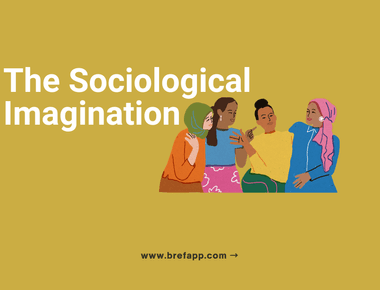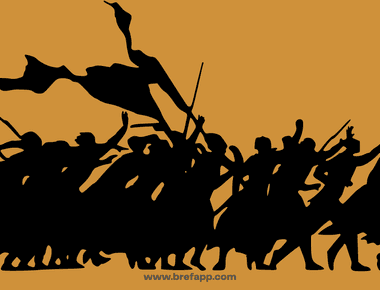
The Division of Labor in Society: A Summary of Emile Durkheim's Work

Emile Durkheim was a French sociologist who is widely considered as one of the founding fathers of modern sociology. He was born in 1858 in Epinal, France and passed away in 1917. Throughout his career, Durkheim made significant contributions to the field of sociology, particularly in the areas of social order, social solidarity, and the division of labor.
Durkheim’s work, “The Division of Labor in Society,” was published in 1893 and is considered a foundational text in the field of sociology. In this work, Durkheim explores the concept of division of labor and its impact on social solidarity and individualism in society. The book is an analysis of the increasing specialization of labor in modern societies, and the ways in which this specialization shapes social organization and individual behavior. Durkheim’s insights into this work continue to be influential in contemporary sociology and beyond.
Durkheim’s Concept of Division of Labor
Durkheim’s concept of division of labor refers to the way in which different tasks and roles in society are divided among individuals and groups. In his view, the division of labor is not simply a matter of practical efficiency, but also has significant social and cultural implications.
Durkheim distinguished between two types of division of labor: mechanical and organic. Mechanical division of labor is characteristic of traditional societies, where individuals perform similar tasks and have similar skills. This type of division of labor is based on the similarity and homogeneity of individuals, and is held together by shared values and beliefs. In this type of society, there is a strong collective conscience that binds individuals together.
In contrast, organic division of labor is characteristic of modern societies, where individuals perform specialized tasks and have different skills. This type of division of labor is based on the interdependence of individuals and the need for cooperation and coordination. In this type of society, the collective conscience is weaker, and individuals are more independent and individualistic.
Durkheim’s concept of division of labor highlights the important role that social organization plays in shaping individual behavior and societal outcomes. The type of division of labor in a society has significant implications for social solidarity, individualism, and overall social cohesion.
The Effects of Division of Labor on Society
A. Positive effects of division of labor on society
Increased productivity: Durkheim argued that the specialization of labor allows individuals to develop specific skills and knowledge that contribute to increased productivity and efficiency. This leads to the production of more goods and services, which benefits society as a whole.
Specialization of skills: The division of labor allows individuals to specialize in a particular task or skill, which can lead to greater proficiency and expertise in that area. This can lead to innovation and progress in various fields, such as science and technology.
Interdependence and cooperation: In societies with organic division of labor, individuals are dependent on each other and must work together to achieve common goals. This can foster a sense of community and cooperation, which can strengthen social bonds.
B. Negative effects of division of labor on society
Social inequality: The specialization of labor can lead to a hierarchy of positions, where some jobs are valued more highly than others. This can lead to social inequality and a lack of opportunities for certain individuals or groups.
Loss of individuality: In societies with organic division of labor, individuals may feel like they are just a small part of a larger machine, and may lose their sense of individuality and autonomy. This can lead to feelings of alienation and disconnection from society.
Anomie: Durkheim argued that societies with weak collective conscience, as found in societies with organic division of labor, can lead to a state of anomie or normlessness. This is because individuals are no longer bound together by shared values and beliefs, which can lead to feelings of confusion and disorientation.
Durkheim’s work highlights the complex and multifaceted effects of the division of labor on society. While it can lead to increased productivity and specialization, it can also have negative consequences for social inequality, individuality, and overall social cohesion.
The Relationship between Division of Labor and Social Solidarity
A. Durkheim’s theory of social solidarity
- Durkheim believed that social solidarity, or the degree to which individuals are integrated into a society, is a fundamental aspect of social order.
- He identified two types of social solidarity: mechanical solidarity and organic solidarity.
- Mechanical solidarity is characteristic of traditional societies with a simple division of labor, where individuals share common values and beliefs. Social cohesion is maintained by a strong collective conscience and a sense of belonging to a group.
- Organic solidarity is characteristic of modern societies with a complex division of labor, where individuals have different skills and perform specialized tasks. Social cohesion is maintained by interdependence and cooperation among individuals, rather than a shared collective conscience.
B. How division of labor affects social solidarity
- The type of division of labor in a society affects the level and type of social solidarity that exists.
- Mechanical solidarity is based on similarity and homogeneity among individuals, and thus is associated with a simple division of labor found in traditional societies.
- Organic solidarity is based on interdependence and cooperation among individuals, and thus is associated with a complex division of labor found in modern societies.
- Durkheim argued that societies with organic solidarity have a weaker collective conscience than societies with mechanical solidarity, because individuals in modern societies are more individualistic and independent.
- This means that societies with organic solidarity rely more on cooperation and coordination among individuals to maintain social cohesion.
FinalToughts
Emile Durkheim’s work on the division of labor in society was a groundbreaking contribution to sociology. Durkheim’s concept of division of labor and its effects on society shed light on the complex relationship between social organization and social order.
Durkheim identified two types of division of labor, organic and mechanical, and explained how they affect social solidarity and individuality in society. He also explored the positive and negative effects of division of labor on society, including increased productivity and social inequality.
Durkheim’s work remains relevant in contemporary society as the division of labor continues to evolve and shape social relationships. His theory of social solidarity and its connection to division of labor provides important insights into the challenges and opportunities presented by social change.
Durkheim’s contributions to sociology have had a lasting impact on the field, and his ideas continue to inspire new research and analysis in the study of society and social organization.
-—
Tags
Related Posts





Quick Links
Categories

